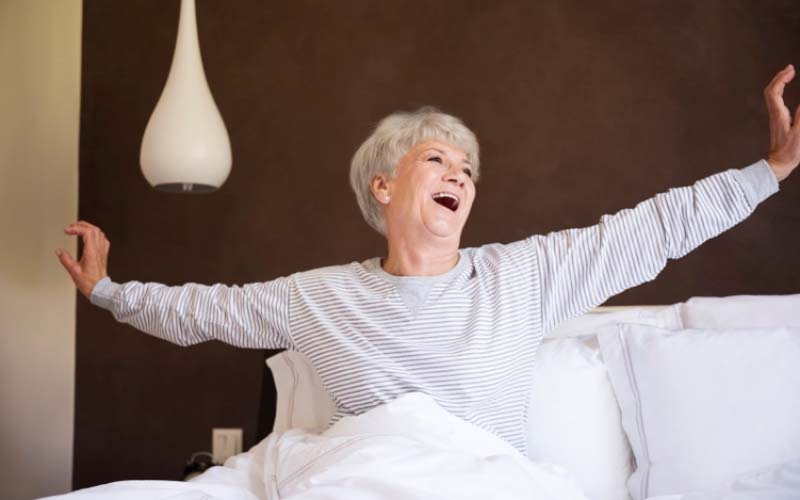
The Importance Of Good Sleep Hygiene
Statistics about the lack of sleep among adults in the United States are somewhat shocking. According to recent studies, some 35% of adults do not get the CDC recommended minimum of seven hours of sleep per night, and adults over the age of 65 are often plagued with frequent bouts of insomnia. Even more alarming are the negative consequences that a lack of quality sleep can create, including health problems, memory loss and a decline in motor and cognitive functioning. It’s important to be aware of the factors that can contribute to poor sleep quality and learn techniques to improve sleep hygiene. Read on to learn more.
Negative Effects of Poor Sleep
Aside from feeling cranky, tired and generally out of sorts, sleep deprivation can cause a host of physical issues. Loss of sleep can affect everything from short-term memory to one’s ability to focus. If you suspect you are not sleeping well at night, consult with your doctor right away. Below are just a few of the negative effects of poor sleep.
- Increased likelihood of motor vehicle accidents as well as physical accidents such as tripping and falling.
- Impaired problem-solving, mental reasoning and concentration.
- Increased risk for serious health issues such as stroke, heart attack, high blood pressure and diabetes.
- Lowered sex drive.
- Slowed metabolism which can result in weight gain or difficulty losing weight.
- Possible impaired immune system function.
Contributing Factors to Impaired Sleep
Lack of adequate sleep may be the result of many factors, including snoring, medication, anxiety or the presence of other health problems. Here are some of the most common causes of poor sleep quality:
- Undiagnosed sleep apnea or other breathing conditions.
- Digestion issues such as heartburn, acid reflux or IBS coupled with eating late in the evening.
- Medications that create a wakeful response.
- Depression or anxiety.
- Medical conditions such as Restless Leg Syndrome (RLS) or chronic pain due to arthritis, fibromyalgia, TMJ or other ailment.
- Overactive bladder or an enlarged prostate.
Tips for Good Sleep Hygiene
The National Sleep Foundation defines sleep hygiene as “…a variety of different practices and habits that are necessary to have good nighttime sleep quality and full daytime alertness.” Although there are many medications available to help people fall asleep, they can be dangerously habit forming and result in grogginess the following day. Here are some safe techniques to promote good sleep hygiene:
- Establish and maintain a consistent sleep schedule. It is well documented that people who go to bed and wake up around the same time each day are more rested than those with sporadic sleep schedules.
- Get rid of the electronics. Electronics can suppress the hormone Melatonin, which aids in sleep. They can also disrupt the natural circadian rhythms. For better sleep quality, remove all electronics (cell phones, tablet, eReaders and even television) from your bedroom.
- Reduce the frequency and length of daytime naps. Taking too many naps or napping for too long can make it more difficult to fall asleep at night.
- Amp up the exercise routine. Exercising during the day, even for as little as ten minutes every day, can result in improved sleep at night.
- Eliminate caffeine, alcohol and large meals at night.
- Make bedtime relaxing. Whether it’s snuggling up with a good book, journaling about the day, meditating or soaking in a warm tub, a calm and relaxing bedtime routine can help prepare your body and mind for a good long snooze.
- Keep the bedroom cool and dark. For the best sleep, make your bedroom into a cave. Turn the temperature down to a recommended 66 degrees, invest in soft bedding in breathable fabrics and use blackout shades or an eye mask. If you are aware of outside noise, consider using ear plugs.
Working closely with your doctor or seeking advice from a medical professional who specializes in sleep disorders can help you create a strategy for improving sleep quality. At Plush Mills, our residences are thoughtfully designed for modern living. Our full-size apartments offer a backdrop for the individual taste and creature comforts of our residents. Schedule a tour today to visit Plush Mills.